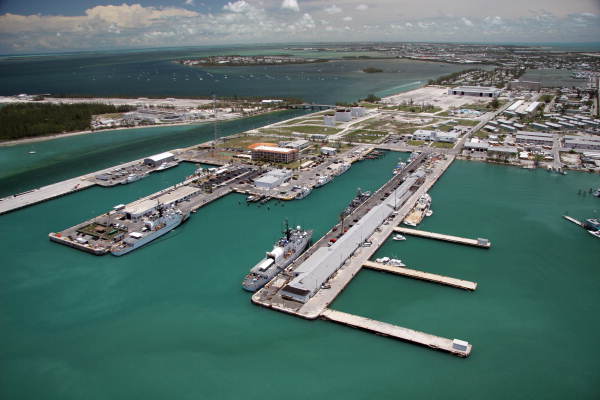
Event Recap: Climate Change Impacts on National Security in South Florida
On May 16, 2022, the American Security Project hosted a panel discussion at Florida International University (FIU) to discuss the links between climate change and U.S. national security. The speakers included:
Moderator:
Irela Bague
Chief Bay Officer, Miami-Dade County
Panelists:
Richard Miller
Executive Director, South Florida Defense Alliance
Deputy Director, Adrienne Arsht-Rockefeller Foundation Resilience Center, Atlantic Council
Representative James Vernon “Jim” Mooney, JR.
FL House of Representatives
Julia Nesheiwat
Florida Chief Resilience Officer (July 2019 – February 2020)
Consensus for American Security
Former U.S. Army military intelligence
Jayantha Obeysekera
Director of the Sea Level Solutions Center and Research Professor,
Florida International University
Dr. Julia Nesheiwat began the conversation by outlining the risks U.S. military installations face from climate change like increased numbers of wildfires, rising sea levels, higher temperatures, and stronger hurricanes.
“Our changing climate certainly hurts our troops, hurts our ability to keep the U.S. safe as well as defense communities.” – Dr. Julia Nesheiwat
Rick Miller continued the conversation stating because “bases are not Islands” they remain vulnerable when communities outside of the base are not protected. This is because those communities house and maintain infrastructure the military relies on.
Miller then discussed the Department of Defense’s Military Installation Resilience Review (MIRR) Program and how the South Florida Regional Planning Council, with help from the South Florida Defense Alliance, recently earned funding to analyze vulnerable infrastructure, like roads, electrical grids, and sewer systems, that bases and surrounding communities require to accomplish their missions.
This MIRR will examine four installations in South Florida concurrently, versus one at a time, taking a novel, regional approach. The study’s design and the regional collaboration used to win the funding are models that would benefit other parts of Florida and even other states.
The conversation then shifted to discussions on the evolution of foreign policy under threats of climate change and what this means for Florida. Dr. Nesheiwat proposed that because of climate change’s implications for resource scarcity, displacement of peoples, and global energy markets, Florida and other legislatures must consider climate issues whenever making policy decisions.
“Foreign policy has become more complicated as climate impacts worsen and as the world is certainly witnessing the shocking humanitarian disasters that unfold, particularly in Ukraine.” – Dr. Julia Nesheiwat
Representative Mooney echoed this concern, “the breadbaskets of the world are changing… which are going to make migration an issue and with migration comes even more problems.” In an ever-changing environment, U.S. foreign policy must change and adapt as well.
The panel members agreed that if the United States is serious about national security, then lawmakers must be serious about improving military base resilience and include surrounding communities in the process. Dr. Nesheiwat and the other panel members insisted climate change poses national security threats to the United States and its allies and that for the United States to protect itself and its people, climate change must be at the forefront of political and military decisions.
The conversation ended on an optimistic note on the battle against climate change when Ms. Bague posed the question “Is it time to stop building on our coastline?” This question was tackled by Dr. Obeysekera who reminded the audience that, with climate change, “we are planning under uncertainty.” He urged the audience to focus on the short-term effects and solutions and stated that when looking at the various tipping points associated with climate change, he believes that “there is a way forward.” Dr. Obeysekera was confident in the ability of communities to come up with solutions for the issues that climate change presents.
Overall, the discussion emphasized the necessity of linking climate security to national security. The conversation highlighted the importance of coordinated partnerships between the military and local communities to ensure military readiness. Representative Mooney, however, noted that updating codes to increase resilience can become “monumental tasks” due to local government bureaucracy.
ASP would like to thank our event partner, Florida International University (FIU) for all the support the FIU team provided. ASP would also like to thank Dr. Bague and each of the panelists for making the time to speak on this important topic.





